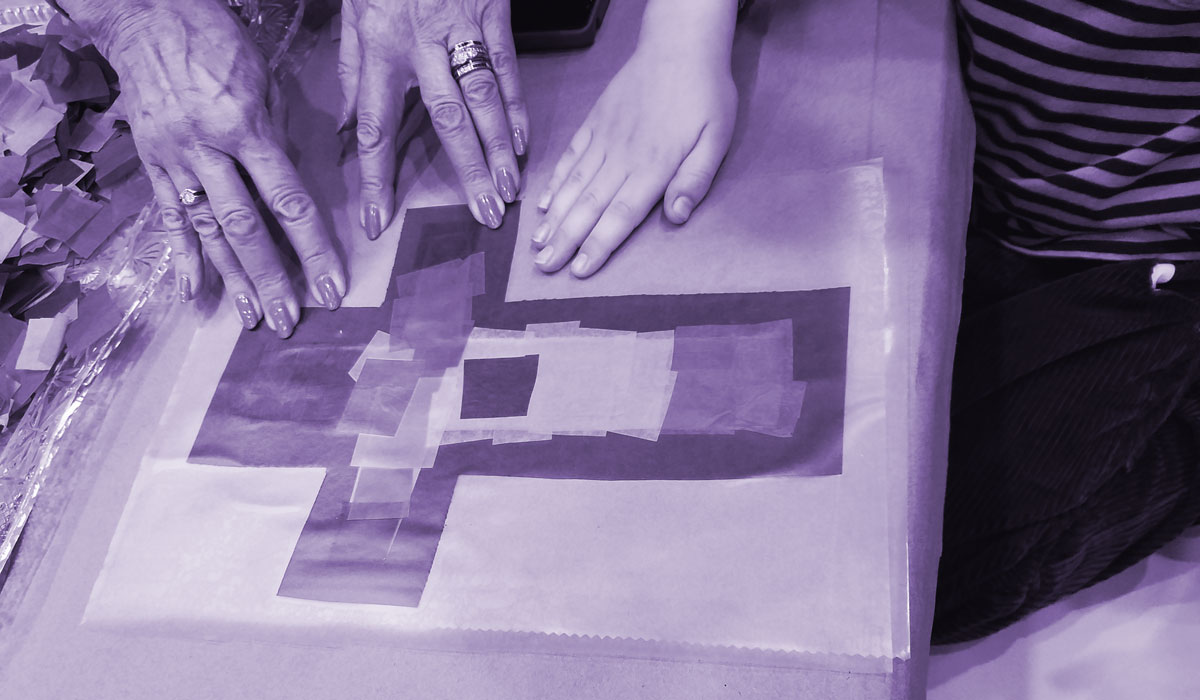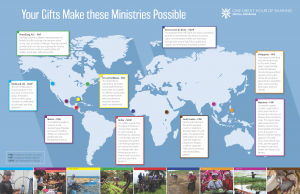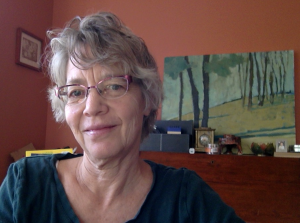Luke 10:38-42
David A. Davis
March 4, 2018
Jump to audio
When Jesus stays for dinner in the gospel of Luke, chances are its going to get uncomfortable. You remember the Risen Christ walking with the two men along the Emmaus Road in the very last chapter of Luke. When they came near to the village the two urge Jesus to stay because it was getting late. And they still didn’t know, then, that it was Jesus. So he stays for dinner. As he took bread, blessed and broke it, and gave it to them, it was then that their eyes were opened and they recognized him. Jesus vanished but they stayed at the table talking about how their hearts had been burning within as he taught along that way. Hearts burning. Eyes opened. But in Luke, when Jesus stays for dinner, it’s not always like that.
Early on Levi the tax collector, the one whom Jesus had just called to follow him, gives a great feast for Jesus in his home. The table is full of tax collectors. The religious leaders get in the face of the disciples complaining about him eating with tax collectors and sinners. “Those who are well have no need of a physician but those who are sick. I have come to call not the righteous but sinners to repentance,” Jesus says. And that’s when one tax collector must have turned to another and said, “Did he just call us sinners?” The Bible doesn’t say that, but right then, that moment, that dinner, it must have been… awkward.
A few chapters later Luke reports that one of the Pharisees asks Jesus to eat with him. So Jesus goes to the house and takes his place at the table. A woman in the city, one who Luke chooses to tell the reader “was a sinner,” she shows up with an alabaster jar of ointment and sits behind Jesus at his feet weeping. She bathes his feet with her tears, dries his feet with her hair, kisses his feet, and anoints his feet with ointment. Not surprisingly the Pharisee host has a concern.
After a brief give and take between Jesus and the Pharisee about debt and forgiveness, Jesus turns toward the woman but says to the Pharisee, “Do you see this woman? I entered your house; you gave me no water for my feet but she bathed my feet with her tears and dried them with her hair. You gave me no kiss but from the time I came in she has not stopped kissing my feet. You did not anoint my head with oil but she has anointed my feet with ointment. Therefore, I tell you, her sins, which were many, have been forgiven, since she has shown great love.” Ouch! That dinner was uncomfortable.
Then there’s that night when Jesus goes to the house of one of the Pharisee leaders for a sabbath meal. Right away Jesus notices how the guests all chose the places of honor to sit. Yeah, that didn’t go so well for the seat-choosey guests. “For all who exalt themselves will be humbled and those who humble themselves will be exalted… When you give a banquet, invite the poor, the crippled, the lame, and the blind. And you will blessed,” Jesus said.
Or the time when a Pharisee invited him to dine after he finished speaking. That meal kind of went south quickly with Jesus saying, “Woe to you Pharisees!” not once, not twice, but three times. A lawyer who is at the table says to Jesus, “Teacher, when you say these things, you insult us too. And Jesus said, ‘Well, woe to you lawyers too!’” Luke writes that when Jesus left that dinner, “the scribes and the Pharisees began to be very hostile toward him and to cross examine him about many things, lying in wait for him, to catch him in something he might say.”
Every time Jesus stays for dinner, according to Luke, every time except for Emmaus, every time Jesus stays for dinner, he stirs the pot. That includes the Last Supper, which from Judas’ perspective had its own share of moments. So you and I shouldn’t be surprised when a bit of discomfort stirs within as you read about Jesus staying for dinner at Martha’s house. Apparently, he is not the easiest of table guests.
Beyond Jesus’ dinner tour in Luke, if you stop and think about, when you invite Jesus over, when you invite Jesus in, when the gospel of Jesus Christ draws near in your life, there is bound to be times when he makes you uncomfortable. There ought to be times when his teaching makes you uneasy. There better be times when you hear the gospel teaching of Jesus and compare it to your life, times when awkward doesn’t even begin to describe it.
As Otis Moss III has said more than once in his preaching, “People want their pastors to preach Jesus, they just don’t want them to preach what Jesus preaches.” If some part of the gospel doesn’t convict you, cause discomfort, frustrate you, mystify you, humble you, you ought to have Jesus over more often.
Martha welcomes Jesus to her home and goes about the tasks of hospitality and preparation that would, of course, be expected by all, including Jesus. Mary chooses to rather boldly take a place at the feet of Jesus and to listen to every word. Mary takes an uncommon place. Mary takes her place. Martha is distracted. She’s too busy to listen. She worries about getting everything right.
Here’s where maybe Martha could have thought of a different approach. Here’s were Martha, if she could have it all back, she might have handled it differently. She asks Jesus to intervene, to tell Mary to help her in the kitchen, to tell her to get back to her “right place.” Martha asks Jesus to put Mary in her place. Jesus answered her, “Martha, Martha, you are worried about and distracted by many things; there is need of only one thing. Mary has chosen the better part, which will not be taken away from her.”
When Jesus stays for dinner, and says your name twice, what comes next is probably going to be hard to hear. You know Jesus had more to say. Luke just doesn’t tell us. Darn it, Luke. No takeaway. No one-verse definition of the one thing, the better part. No memorable parting shot like Jesus usually offers to the Pharisees at the end of dinner. This dinner just ends with the one thing. Jesus, Mary, and the better part. That’s it.
It’s good to know they all got together again; Martha, Mary, and Jesus. There were more dinner parties. The Gospel of John tells of Jesus coming back to their house after Lazarus died. Then John tells of another meal a few days later with Lazarus now out of the tomb. Martha served dinner for Jesus too. But no word of judgment. No questioning of Mary. Probably less banging of pots. So there were more conversations, times together, more dinners. I wonder if Mary ever cooked? So Martha could find that place. Her place. The one thing. The better part.
Trying to find the one thing. It’s not just about polishing one’s spiritual disciplines or stepping up when it comes to devotions, or trying to be more religious (heaven forbid). It’s less, much less about perfect attendance here and much more about how easily we are distracted out there. Distracted until you eventually care less, or you don’t care at all. You take Christ’s love for you for granted. Forget about God’s promise of you. And scoff at that kingdom vision of a more excellent way.
Is there a greater threat to faith and practice and community and witness than people who just don’t care? A greater threat than when God’s people move from distraction to nothingness? Those called by God who come to the point where they just couldn’t be bothered anymore? That’s the antithesis of the one thing, the opposite of the better part. The opposite of Mary’s one thing is not Martha’s distraction. It’s not getting lost in the tasks of hospitality. The opposite of the better part is becoming one with a world that is oblivious to the presence of God and the way of Jesus. A world whose powers and principalities work against the kingdom way, a kingdom life.
One thing. To walk along this discipleship way, this way with Jesus that takes us from the Galilee of teaching to the Jerusalem of cross and resurrection, to travel this journey with Christ Jesus, the journey that is our lives, and to find somewhere along that way to sit at his feet and listen, to find somewhere along the way when you can take your place. One thing.
To yearn to hear a Word, the Word, the Living Word that tells you again and again of God’s love for you, and God’s vision for the kingdom, and God’s promise to be with you, through it all. One thing. To attend to the transforming presence of God in every corner of your life, and to attend to it with urgency. One thing. To be caught in the swirl of the world’s chaos, knowing yourself to be a bit out of control to, a sense that the ground under your own feet is shaking, and yet finding a way to turn to, fall before, sit at the feet of the Rock of our Salvation. One thing.
A figure–ground relationship where God is at the center. One thing. To smash the idol of compartmentalization, as if your faith can be kept safely here, here in the pew to be picked up each week and then left behind for the next time. One thing. Tending to the presence of God in your life, at work, in your home, in your relationships, in your finances, in your politics, in your recreation, in how you give back.
One thing. To understand somewhere deep within that you can never sustain the pace of life, the mountain of responsibilities, the ever-mounting worries without returning to, finding that place again and again.
When you hear the story of Martha and Mary again, a story of Jesus staying for dinner, it’s uncomfortable, a bit awkward, and raises more questions than answers. That’s okay. It’s not surprising. It’s kind of expected when Jesus comes for dinner. But the take away, the prayer, it’s not that hard at all. “Jesus help me find my place at your feet. Oh, Lord Jesus, put me in my place. The place you have for me.”
© 2018 Nassau Presbyterian Church
Contact the church to obtain reprint permission.




